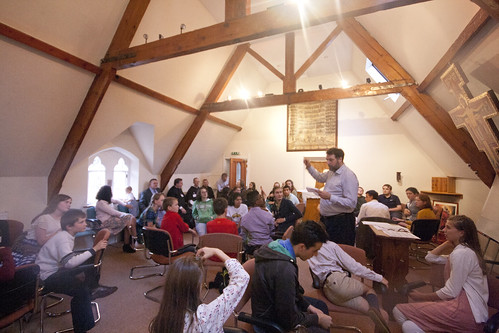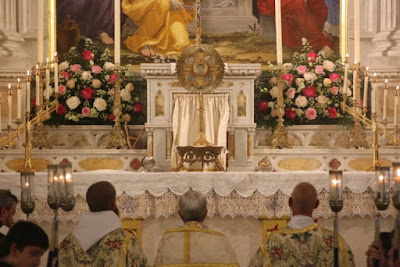
Part I: July 1987 - February 1988
Part II: March 1988 - May 5, 1988
Archbishop Marcel Lefebvre, founder of the Priestly Fraternity of Saint Pius X (FSSPX / SSPX), received in the Fraternity House at Albano Laziale (near Castel Gandolfo) the final text of the Protocol which was sent to him by Cardinal Ratzinger. It was 4:30 PM as the old bishop signed the text. His most extensive biographer, Bishop Tissier de Mallerais (one of the chief negotiators in that afternoon and who would be consecrated on June 30), described the scene:
Part II: March 1988 - May 5, 1988
Archbishop Marcel Lefebvre, founder of the Priestly Fraternity of Saint Pius X (FSSPX / SSPX), received in the Fraternity House at Albano Laziale (near Castel Gandolfo) the final text of the Protocol which was sent to him by Cardinal Ratzinger. It was 4:30 PM as the old bishop signed the text. His most extensive biographer, Bishop Tissier de Mallerais (one of the chief negotiators in that afternoon and who would be consecrated on June 30), described the scene:
His face perfectly expresse[d] the mixed feelings which gripped him: "real satisfaction," as he would write to Ratzinger, and silent mistrust which he spoke of to the sisters in the Cenacolo convent [of the Discepole del Cenacolo, in Velletri, near Albano] at 3 PM: "If Don Putti [Fr. Francesco-Maria Putti, a Traditional Roman priest and spiritual son of Padre Pio, who guided and formed the sisters until his death in 1984] were here, what would he say? 'Your Grace, where are you going? What are you doing?' "
The Archbishop did not sleep during what must have felt like one of the longest nights of his life. The following morning, after Mass and Prime, he sent a letter to Cardinal with an ultimatum of his own: the deadline of June 30, 1988, mentioned in one of his previous letters exchanged in the negotiations was still valid. The text of that letter was:

Yesterday it was with real satisfaction that I put my signature on the Protocol drafted during the preceding days. However, you yourself have witnessed my deep disappointment upon the reading of the letter, which you gave me, bringing the Holy Father's answer concerning the episcopal consecrations.
Practically, to postpone the episcopal consecrations to a later undetermined date would be the fourth time that it would have been postponed. The date of June 30 was clearly indicated in my previous letters as the latest possible.
I have already given you a file concerning the candidates. There are still two months to make the mandate.
Given the particular circumstances of this proposal, the Holy Father can very well shorten the procedure so that the mandate be communicated to us around mid-June.
In case the answer will be negative, I would find myself in conscience obliged to proceed with the consecrations, relying upon the agreement given by the Holy See in the Protocol for the consecration of one bishop, member of the Society.
The reticence expressed on the subject of the episcopal consecration of a member of the Society, either by writing or by word of mouth, gives me reason to fear delays. Everything is now prepared for the ceremony of June 30: hotel reservations, transportation, rental of a huge tent to house the ceremony.
The disappointment of our priests and faithful would be extreme. All of them hope that this consecration will be realized with the agreement of the Holy See; but being already disappointed by previous delays they will not understand that I would accept a further delay. They are aware and desirous above all of having truly Catholic bishops transmitting the true Faith to them, and communicating to them in a way that is certain the graces of salvation to which they aspire for themselves and for their children.
In the hope that this request shall not be an insurmountable obstacle to the reconciliation in process, please, Eminence, accept my respectful and fraternal sentiments in Christo et Maria.
+Marcel Lefebvre
Upon receiving the letter, Cardinal Ratzinger immediately canceled the publication of the communiqué which had been prepared - which explains the scarce report by the secular media of what was taking place. Ratzinger first wrote a note to Lefebvre, asking him to "reconsider his position".



















